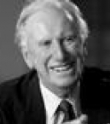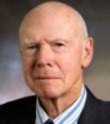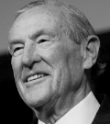Clearly the most momentous event of 2016 was the election of Donald Trump. Already his disappointing, controversial appointments, his continued irresponsible ‘tweetings’ on serious matters of state, his post-election ‘victory’ rallies’, his clear unwillingness to disassociate from his business empire and his continued repetition of falsehoods justify the pessimism that greeted his election, especially in Europe and in the United States itself. Coming on top of Brexit, 2016 may come to be seen as an historical turning point, revealing serious unresolved tensions that had built up, to varying degrees, in the rich democracies, at least in part as an unintended consequence of the global, liberal, capitalist order dominated by the United States. Russia was the principal ‘winner’ in 2016. It established itself as the decisive player in the Syrian imbroglio while restoring relations with Turkey and strengthening its relationship with Iran. No country has a greater stake than Russia in defeating Islamic terrorism given its extensive common borders with Moslem majority states and a Sunni minority in excess of ten per cent of its population. If as seems to be the case Trump and Putin agree that Islamic terrorism is the most serious threat facing their countries, arguably the best course for the United States would be to join unequivocally with Russia in its defeat. That appears to be the preferred Trump policy. However, the multiple, conflicting strands in current US Middle East policy will be difficult for Trump to resolve. For example his nomination of David Friedman as Ambassador to Israel and his seeming intention to move the US Embassy to Jerusalem will contribute to further regional instability and diminish the declining regional influence of the United States. Any going back on the Iran nuclear agreement will compound Trump’s problems. Trump’s positive attitude to Russia seems unlikely to extend to China , as shown for example by his phone conversation with Taiwan’s president and subsequent utterances. Since China, not Russia, is the real long-term threat to American global hegemony, that could make strategic sense. Australia is a clear loser from the Trump victory. The death of the Trans-Pacific Partnership and Trump’s seeming attachment to a retreat from free trade could set back the further economic development of the nations of south-east Asia. It is easy to overlook that it was ‘trade not aid’ which largely brought about the phenomenal rise from poverty of developing countries in Asia. Certainly, a protracted set-back to Indonesia’s economic progress could have serious adverse impacts on Australia’s long-term security. The most disturbing ultimate consequence for Australia (and the world) of a Trump presidency could turn out to be a reversal of the momentum for dealing seriously with climate change established by the Paris accord and the recent Marrakech conference. His relevant appointments are deeply disturbing on this score. The accord reached between Obama and Xi Jinping over reining in carbon emissions was among the most encouraging recent development in international relations. If the policies pursued by Trump’s relevant key appointments are as reactionary as their records suggest China may see the wisdom of establishing global leadership in this area. Australia and its neighbours are among those countries with the biggest stake in controlling global warming. They should join together to persuade China to give leadership, if that becomes necessary. | 


















